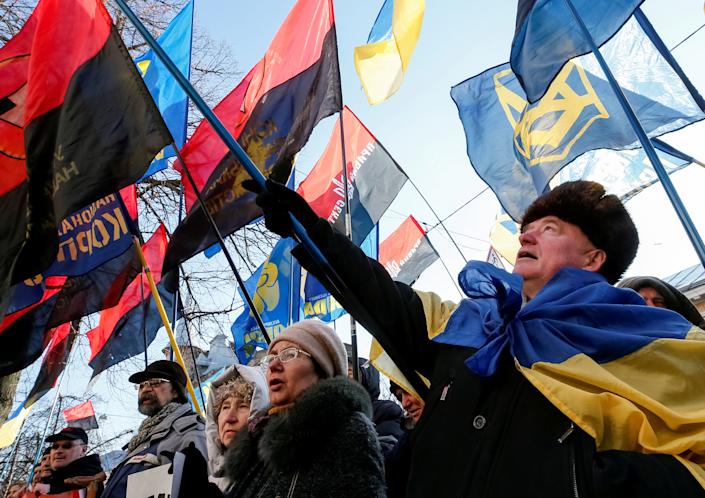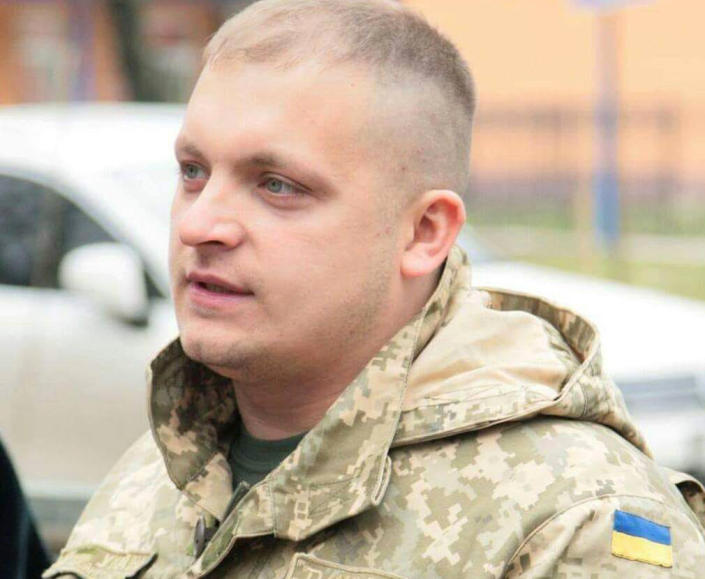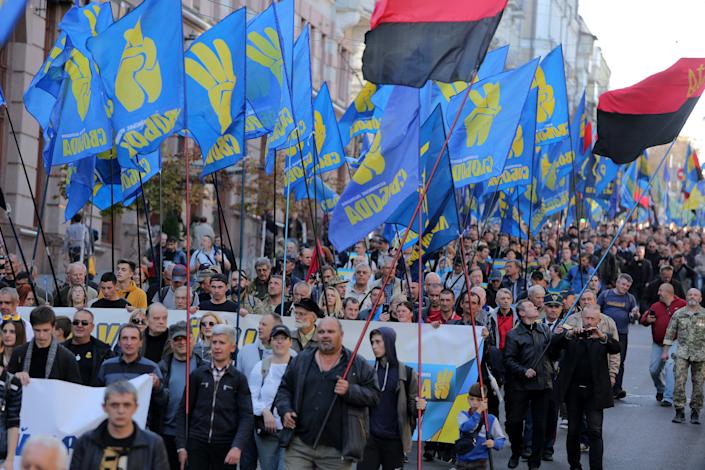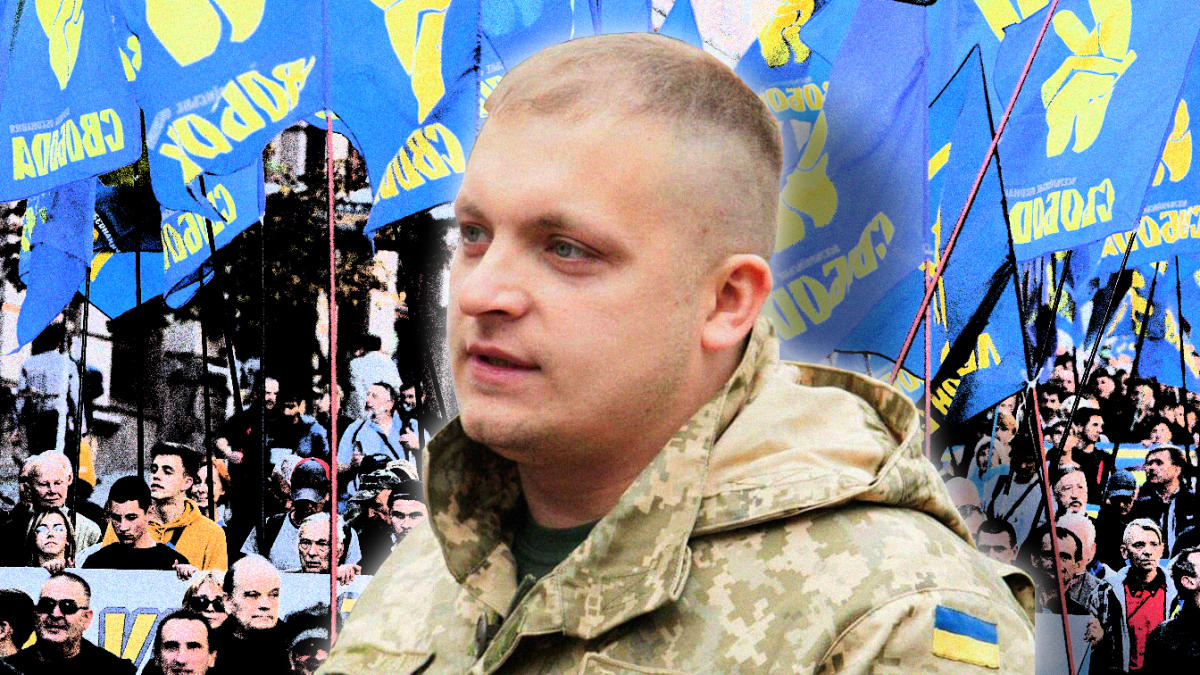It was a particularly inspiring story of Ukrainian bravery, in a war filled with many of them: In a video that quickly circulated online on March 2, Artem Semenikhin, the mayor of the small town of Konotop, in northeastern Ukraine, stood up a planter outside the city council and told a crowd that Russian soldiers had told him they would “raze the city to the ground with their artillery” if the city did not surrender. Then Semenikhin asked the crowd if they wanted to fight after all, and the answer was overwhelmingly in favour.
The video was picked up by Western media outlets, including Newsweek, the Daily Mail and the New York Times, which also showed a video of armed Russian troops being booed by residents of Konotop. Semenikhin was also featured on a PBS NewsHour segment, in which he referred to Russian troops as “cockroaches.”
Only one thing was missing from those reports: the fact that Semenikhin is a member of the far-right, ultra-nationalist Ukrainian political party Svoboda, which emerged in 2004 from the former Social-National Party of Ukraine.

In 2015, shortly after Semenikhin took office, the Jerusalem Post reported that he “refused to fly the city’s official flag at the city’s opening meeting because he objected to the Star of David affixed to it.” The newspaper also claimed that he used white racist dog whistles.
A sharp-eyed observer on Twitter noted that Semenikhin’s interview with PBS, taken remotely via video, features a painting of Ukrainian nationalist icon Stepan Bandera in the background. During World War II, Bandera led the Ukrainian Insurgent Army, which collaborated with Nazi Germany and killed Polish and Jewish civilians. At that time, Nazi troops invaded the Soviet Union, from which Ukrainian nationalists hoped to escape. Bandera later got into an argument with the Nazi regime and was imprisoned in a concentration camp. He remains a highly controversial figure in Ukraine. After Semenikhin was elected in 2015, he replaced the portrait in the mayor’s office of then-Ukrainian President Petro Poroshenko with one of Bandera’s.

As a pretext for his invasion, Russian President Vladimir Putin has repeatedly attempted to link the entire Ukrainian government to the Nazis, vowing to “de-nazify” the Kiev regime. But Putin’s claim is absurd, based on the facts: the town of Konotop in Semenikhin had only about 80,000 people before the war, while Ukrainian President Zelensky is one of the few Jewish leaders on the world stage and says he has left many relatives behind. murder in the Holocaust.
Russia has been making this false accusation for years. In 2014, Russian state propaganda claimed that the Maidan Revolution was also supported by the Nazis when the pro-Western protesters overthrew Russian-backed President Viktor Yanukovych. Experts on Ukraine characterized that claim as “completely unfounded,” according to US News & World Report.
That said, as in many European countries, Ukraine has far-right, nationalist political parties with racist leanings. Svoboda, Semenikhin’s party, has had a number of incidents that have sparked widespread condemnation.

Svoboda’s leader, Oleh Tyahnybok, has been accused of racism and anti-Semitism for saying Ukraine was run by a “Muscovite Jewish mafia”. On April 20, 2018 – Adolf Hitler’s birthday – Svoboda’s youth movement, C14, destroyed a Roma settlement in Kiev by evicting residents and setting fire to their tents.
It is worth noting, however, that Svoboda has run out of seats in the Ukrainian parliament, while far-right nationalists have seats in the parliaments of at least 19 European countries, including Hungary, Austria, Switzerland and Denmark.
†
What happened this week in Ukraine? Check out this explanation from Yahoo Immersive to find out.


